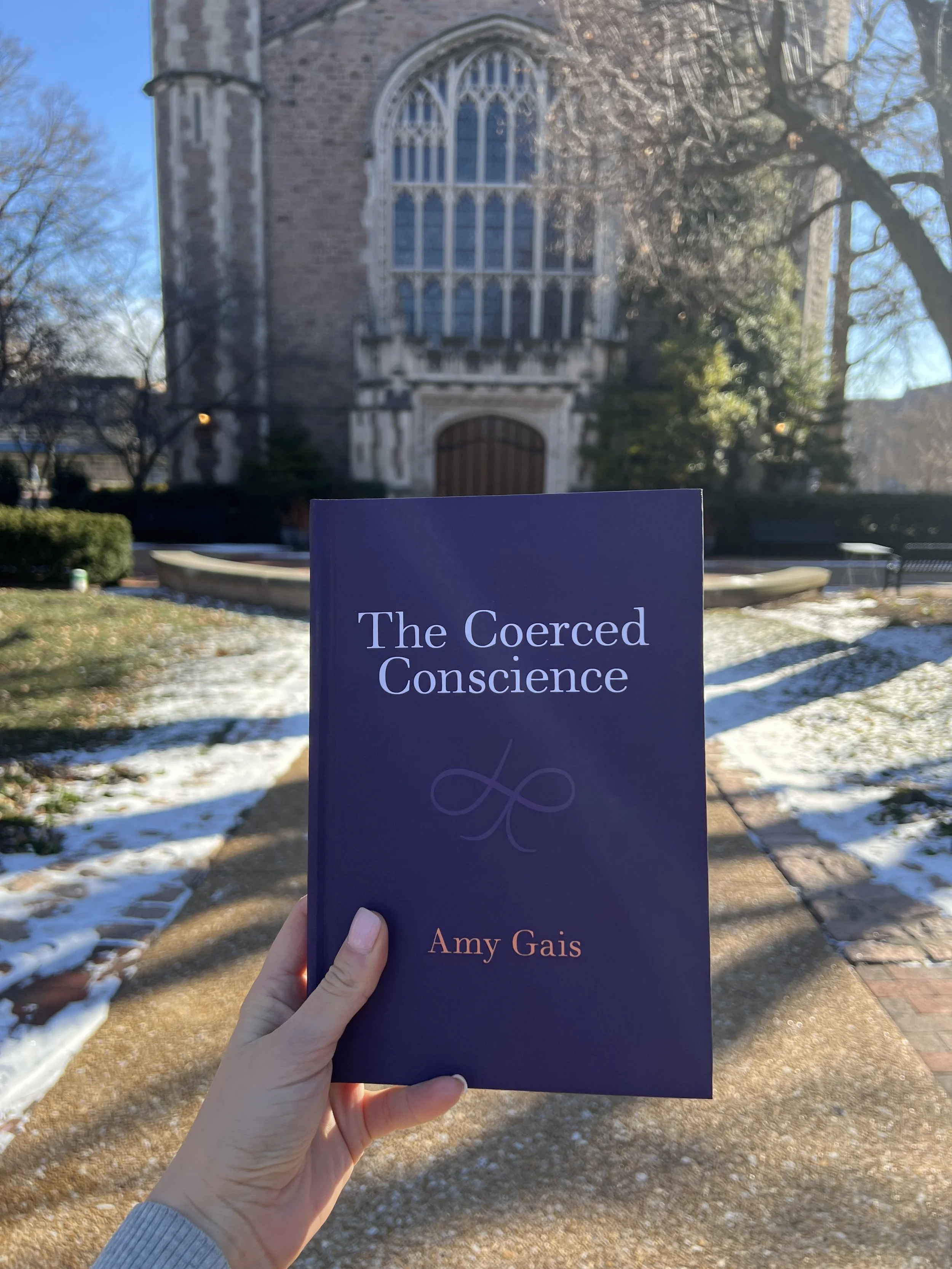Brookings Quadrangle, Washington University in St. Louis, August 2018
Dr. Amy Gais (she/her) is a political theorist specializing in political freedom, specifically the question of how individuals resist and confront oppression. Dr. Gais is a Lecturer in the Department of Political Science and the Interdisciplinary Project in the Humanities at Washington University in St. Louis. Previously, Dr. Gais was a Modeling Interdisciplinary Inquiry Postdoctoral Fellow at the Interdisciplinary Project in the Humanities at WUSTL. Dr. Gais received her Ph.D. in Political Science with Distinction from Yale University, where she was the recipient of the Robert C. Wood Prize and an American Council of Learned Societies Emerging Voices finalist, and her M.A. from University of Chicago. She is the author of The Coerced Conscience (Cambridge University Press, 2024). She is working on a second book project on freedom and dissimulation in African American political thought, Freedom, Dissimulation, and Resistance in African American Political Thought. Her work has been published by Political Theory, Review of Politics, and History of European Ideas, and funded by the Andrew J. Mellon Foundation and the Beinecke Rare Books & Manuscripts Library. Her email is amy.gais@wustl.edu.
“The Coerced Conscience is a formidable and incisive book, one offering fresh ideas for cultivating and protecting conscience against anxieties of conformity, insincerity, hypocrisy, and torment. Gais supplies inspired analyses of long-standing concerns in modern “The Coerced Conscience is a formidable and incisive book, one offering fresh ideas for cultivating and protecting conscience against anxieties of conformity, insincerity, hypocrisy, and torment. Gais supplies inspired analyses of long-standing concerns in modern and contemporary political theory, generating a powerful treatment for conscience and its demands.”
Lucas Swaine, Dartmouth College
“Freedom of conscience is a malleable, contested, and often misunderstood concept. By recovering the ideas of its most ardent defenders and most vocal critics of the early modern period, Amy Gais’ beautiful new book powerfully reminds us of how central freedom of conscience is for the capacities of citizenship, civic trust, and individual authenticity.”
Glory Liu, John Hopkins University
“In a time when claims of conscience constantly—and controversially—clash with the demands of social equality and the rule of law, this work could hardly be more timely. Gais’ compact, sensitive interpretations of Milton, Hobbes, Spinoza, and Bayle illuminate conscience’s multifacted aspects and origins. Her deft contemporary arguments stress both the political and moral costs of overindulging conscience and the social and psychological costs of belittling it. Her arguments will unsettle almost everyone. An excellent book.”
Andrew Sabl, University of Toronto
The Coerced Conscience out in the world! Graham Memorial Chapel, Washington University in St. Louis, January 2024.



